INTERFACE conferences feature a diverse range of session topics that cater to the ever-evolving landscape of technology. Participants can immerse themselves in enlightening discussions on cutting-edge trends such as artificial intelligence and machine learning, cloud computing strategies, cybersecurity best practices, data analytics insights, and the latest advancements in IT infrastructure.
Engaging sessions delve into topics like digital transformation, agile methodologies, and DevOps practices, providing valuable insights for professionals seeking to enhance their organization’s efficiency and innovation. Additionally, speakers at INTERFACE address crucial aspects of data governance, privacy, and compliance to help attendees navigate the complex regulatory landscape.
Whether exploring emerging technologies or mastering fundamental IT principles, each session lineup ensures a comprehensive and dynamic experience for participants, fostering knowledge exchange and networking opportunities within the IT community.
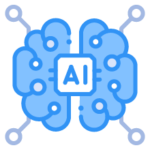
Artificial Intelligence
Artificial intelligence (AI) is computer software that mimics human cognitive abilities to perform complex tasks that could only be done by humans, such as decision making, data analysis, and language translation. AI is an umbrella term covering a variety of interrelated, but distinct, subfields such as Machine learning (ML), Deep learning (DL), Natural Language Processing (NLP), and Robotics.

Business Continuity / Disaster Recovery
Business Continuity and Disaster Recovery (BCDR or BC/DR) are closely related practices that describe an organization’s preparation for unforeseen risks to continued operations. The trend of combining business continuity and disaster recovery into a single term has resulted from a growing recognition that both business executives and technology executives need to collaborate closely instead of developing plans in isolation.

Culture
An organization’s culture consists of the values, beliefs, attitudes, and behaviors that employees share and use daily in their work. The organization’s culture determines how employees describe where they work, how they understand the business, and how they see themselves as part of the organization.
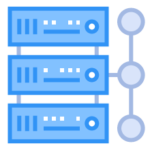
Data Center Technology
A data center is a facility used to house computer systems and associated components, such as telecommunications and storage systems. It includes redundant or backup power supplies, redundant data communications connections, environmental controls (e.g., air conditioning, re-suppression), and various security devices. Large data centers are industrial-scale operations using as much electricity as a small town.
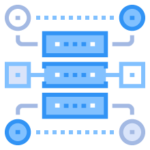
Data Management
Data management refers to the processes, policies, and practices that organizations use to acquire, organize, secure, and utilize their data resources. It includes various aspects such as data governance, data analytics, data quality, data integration, and data lifecycle management.
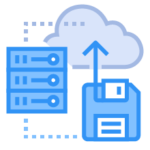
Data Storage
Data storage is a general term for archiving data in electromagnetic or other forms for use by a computer or device. Different types of data storage play distinct roles in a computing environment. In addition to forms of hard data storage, there are now new options for remote data storage, such as cloud computing, that can revolutionize the ways that users access data.

Digital Experience
Digital experience refers to the overall interaction and engagement that individuals have with digital technologies, platforms, and services. It encompasses a user’s encounter with websites, mobile applications, online content, and various digital touchpoints. A positive digital experience is characterized by user-friendly interfaces, seamless navigation, responsive design, and engaging content. It goes beyond functionality to consider aspects such as speed, accessibility, and personalization. Organizations strive to enhance digital experiences to meet user expectations, build brand loyalty, and drive customer satisfaction. Digital experience is a holistic concept that reflects the quality of interactions users have across the digital landscape, shaping their perception of a brand or service in the digital realm.
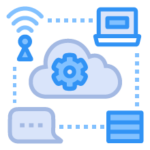
Infrastructure
IT infrastructure refers to the composite hardware, software, network resources, and services required for the existence, operation, and management of an enterprise IT environment. It allows an organization to deliver IT solutions and services to its employees, partners, and/or customers and is usually internal to an organization and deployed within owned facilities.

Strategic Management
Strategic management involves the formulation and implementation of the major goals and initiatives taken by a company’s top management on behalf of owners, based on consideration of resources and an assessment of the internal and external environments in which the organization competes. Strategic management provides overall direction to the enterprise and involves specifying the organization’s objectives, developing policies and plans designed to achieve these objectives, and then allocating resources to implement the plans. Academics and practicing managers have developed numerous models and frameworks to assist in strategic decision-making in the context of complex environments and competitive dynamics. Strategic management is not static in nature; the models often include a feedback loop to monitor execution and inform the next round of planning.

Unified Communications
Unified Communications (UC) is a comprehensive approach to integrating various communication tools and channels within an organization to streamline and enhance collaboration. By combining real-time communication services such as instant messaging, video conferencing, voice calls, and presence information, UC seeks to create a unified and seamless user experience. UC is designed to optimize communication workflows, boost organizational efficiency, and create a more connected and agile workplace environment.

